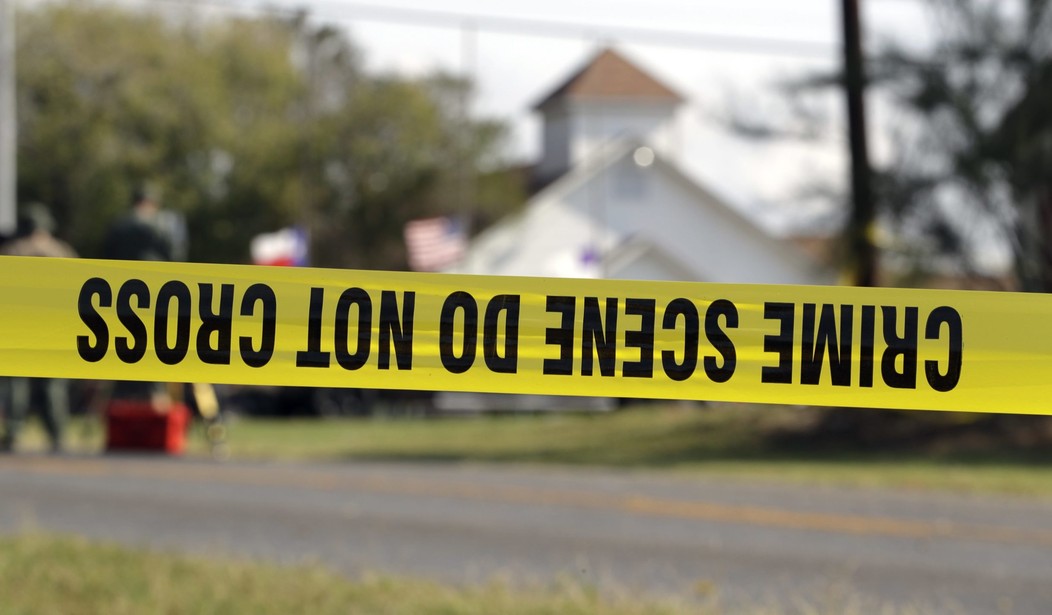WASHINGTON – Following a mass shooting that killed 26 at a church in Sutherland Springs, Texas, Sen. John Cornyn (R-Texas) introduced legislation last week that would penalize political appointees who fail to meet the standards of the FBI’s criminal background check system, among other reforms.
The 26-year-old gunmen, Devin Patrick Kelley, had previously been discharged from the Air Force for bad behavior. His domestic violence conviction in military court should have disqualified him from buying a semi-automatic rifle he used to murder churchgoers, but the FBI never received proper records from the Air Force.
“For years agencies and states haven’t complied with the law, failing to upload these critical records without consequence,” Cornyn said in a statement when introducing the Fix NICS Act, referring to the FBI’s National Instant Criminal Background Check System. “Just one record that’s not properly reported can lead to tragedy, as the country saw. … This bill aims to help fix what’s become a nationwide, systemic problem so we can better prevent criminals and domestic abusers from obtaining firearms.”
The legislation, which has gained co-sponsor support from seven Democrats and six Republicans, would eliminate bonus pay for political appointees working at federal agencies who fail to “upload relevant records to the background check system.” It would also direct agencies and states to roll out new plans to ensure that all relevant information is up to date.
The legislation has the support of Sens. Chris Murphy (D-Conn.), Tim Scott (R-S.C.), Richard Blumenthal (D-Conn.), Orrin Hatch (R-Utah), Dianne Feinstein (D-Calif.), Dean Heller (R-Nev.) and Jeanne Shaheen (D-N.H.).
“This bill will make sure that thousands of dangerous people are prevented from buying guns,” Murphy said in his own statement. “It represents the strongest update to the background checks system in a decade, and provides the foundation for more compromise in the future.”
David Kopel, a leading Second Amendment scholar who works as an associate policy analyst at the Cato Institute and research director at the Independence Institute, said in a recent interview that the legislation, which he said would improve the background check system, has a realistic chance of passing.
However, he said the bill does nothing to solve other problems with the background check database, specifically the issue of “false positives” that prevent valid access to guns. A false positive could mean lengthy delays or an inability to purchase firearms for eligible individuals, which Kopel said “can be harmful for their life and self-defense.”
Kopel also argued for re-enabling a restoration of rights program, which could mean gun access for felons who have had clean records for long periods of time.
The Cornyn bill is considered an extension of the Gun Control Act of 1968, which included a process for restoration of rights. That process allows a person to petition the Bureau of Alcohol, Tobacco, Firearms and Explosives, which can use its discretion to restore firearms possession rights. However, that system has been defunded by appropriations riders since 1993.
Kopel noted that in Colorado, where he teaches law at Denver University, more than half of denials are appealed, and more than half of those appeals are upheld.
“We’ve got a problem of people getting improperly denied that needs to be addressed,” Kopel said. “Colorado is sort of the extreme, but there is certainly a problem with the number of people who buy guns. The number of false denials is large.”
Cornyn’s legislation rewards states that show a high level of compliance with NICS standards through federal grant incentives, and it re-establishes programs that lawmakers claim will better enable state government communication with law enforcement.
“As we tragically found out after the heartbreaking shooting at Mother Emanuel, we know the devastation that can manifest if gaps in reporting allow a madman with a criminal history to obtain a weapon,” Scott said in a statement, referring to the 2015 Charleston church massacre. “While we cannot legislate against pure evil, we most certainly should do all we can to ensure these individuals do not have access to any type of firearm.”









Join the conversation as a VIP Member